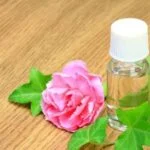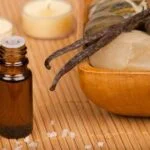Aromatherapy, the practice of using essential oils for therapeutic purposes, has been gaining increasing popularity in recent years. People are turning to aromatherapy as a holistic approach to promoting well-being and improving both physical and mental health. But why does aromatherapy work? In this article, we will explore the science behind aromatherapy and delve into the physiological and psychological effects of essential oils on the body and mind.
Aromatherapy is an ancient practice that dates back thousands of years. It involves the use of aromatic plant extracts, commonly known as essential oils, which are derived from flowers, leaves, stems, roots, or other parts of plants. These concentrated oils contain natural compounds that have therapeutic properties and can impact our bodies and minds in various ways.
While the exact mechanisms of how aromatherapy works are still being studied, research has shown that inhalation or topical application of essential oils can have profound physiological and psychological effects. When inhaled, the scent molecules stimulate receptors in our nasal cavity, which then send signals to our brain’s limbic system – the region responsible for emotions and memories. This connection between smell, emotions, and memories explains why certain scents can evoke specific feelings or trigger nostalgic moments.
Additionally, essential oils can also have direct physiological effects on our bodies. For instance, certain oils like lavender and chamomile have calming properties that help reduce stress levels and promote relaxation. Other oils like eucalyptus or peppermint have analgesic properties that help alleviate pain or discomfort. These therapeutic benefits make aromatherapy a versatile tool for addressing both physical ailments and emotional well-being.
In the following sections of this article, we will explore in more detail how aromatherapy works on both the mind and body. We will discuss the power of essential oils in promoting mental health, stress relief, relaxation, pain management, immune system support, improved sleep quality, serenity promotion, and more.
We will also provide practical tips and techniques for incorporating aromatherapy into your everyday life. But first, let’s delve deeper into the science behind aromatherapy and understand why it has become such a popular and effective method of achieving well-being.
The Science Behind Aromatherapy
Aromatherapy, the practice of using essential oils for therapeutic purposes, has gained significant popularity in recent years. Many people swear by the healing and relaxation benefits of this alternative therapy. But what is the science behind aromatherapy? How do these aromatic oils actually work to promote well-being?
Physiological Effects
One of the key ways that essential oils affect the body is through their physiological effects. When inhaled or absorbed through the skin, these oils can have a direct impact on various bodily systems. For example, certain essential oils are known to have analgesic properties, which means they can help to relieve pain and inflammation. Others have antimicrobial properties, making them effective in fighting off infections.
Additionally, essential oils can stimulate blood circulation and enhance lymphatic flow, helping in the detoxification process of the body. Some oils even have adaptogenic properties, meaning they can adapt to what the body needs and restore balance.
Psychological Effects
In addition to their physiological effects, essential oils also have powerful psychological effects on the mind. The sense of smell is strongly linked to our emotions and memories. When we inhale certain scents from essential oils, they can trigger emotional responses and even evoke specific memories.
For example, lavender oil is often used for relaxation because it has a calming effect on the nervous system. On the other hand, citrus scents like lemon or orange oil are known for their uplifting and energizing properties.
Moreover, essential oils can influence brain chemistry by affecting neurotransmitters like serotonin and dopamine. These neurotransmitters play a crucial role in regulating mood and emotions.
Understanding both the physiological and psychological effects of essential oils helps explain why aromatherapy works so effectively in promoting overall well-being. By harnessing these natural properties through inhalation or topical application, individuals can experience a wide range of benefits for both their body and mind.
The Sense of Smell
The Science Behind the Sense of Smell
Before diving into the connection between smell, emotions, and memories, it’s important to understand the science behind the sense of smell. The olfactory system in our bodies consists of the nose, olfactory neurons, and olfactory receptors. When we inhale an aroma, molecules from that substance bind to these receptors and send signals to the brain through the olfactory bulb.
Smell, Emotions, and Memories
Numerous studies have shown that smells can trigger strong emotional responses and evoke memories from the past. This is because the olfactory bulb connects directly to two areas in the brain: the amygdala and hippocampus. The amygdala is responsible for processing emotions, while the hippocampus plays a role in memory formation.
When we encounter a familiar scent or aroma, it can directly stimulate these areas of the brain and evoke feelings and memories associated with that particular smell. For example, smelling lavender may bring about feelings of relaxation because it has been associated with calmness through personal experiences or learned associations.
Implications for Aromatherapy
Understanding this connection between smell, emotions, and memories helps explain why aromatherapy can be so effective in promoting well-being. By using essential oils with specific scents during aromatherapy practices, people can intentionally trigger positive emotional states or access pleasant memories associated with those scents.
For instance, inhaling citrus scents like lemon or orange essential oil may help uplift mood and increase energy levels due to their refreshing qualities. On the other hand, soothing scents like lavender or chamomile can help induce relaxation and reduce feelings of stress or anxiety.
This deep connection between smell, emotions, and memories is a key aspect of the effectiveness of aromatherapy. By harnessing the power of scent, aromatherapy offers a holistic approach to promote emotional well-being and improve overall quality of life.
Understanding the Power of Essential Oils
Aromatherapy utilizes essential oils to promote healing and well-being. These oils are extracted from various plants and possess unique therapeutic properties that contribute to their effectiveness in aromatherapy. Understanding the power of essential oils is key to harnessing their benefits for physical and mental health.
Each essential oil has its own set of therapeutic properties that can address specific concerns. For example, lavender oil is widely known for its calming and relaxing effects, making it beneficial for reducing anxiety and promoting better sleep. Peppermint oil, on the other hand, possesses analgesic properties that can help relieve headaches and muscle pain.
Other essential oils like tea tree oil have powerful antimicrobial properties, making them effective in treating skin conditions such as acne or fungal infections. Eucalyptus oil is commonly used for respiratory issues due to its decongestant and expectorant properties, while chamomile oil is often used for its anti-inflammatory and soothing effects.
Besides their therapeutic properties, essential oils used in aromatherapy also offer additional benefits. Many essential oils have antioxidant properties that help protect cells against damage caused by free radicals. Some oils also have anti-inflammatory effects that can aid in reducing inflammation in the body.
How Aromatherapy Works on the Mind
Aromatherapy has long been recognized for its benefits on mental health, stress relief, and relaxation. The use of essential oils in aromatherapy can have a profound impact on the mind, promoting emotional well-being and creating a sense of calm and tranquility. This section will explore how aromatherapy works on the mind and the science behind its effects.
One key aspect of aromatherapy’s impact on the mind lies in the connection between smell, emotions, and memories. The olfactory system, responsible for our sense of smell, is closely linked to the brain’s limbic system, which regulates emotions and memories.
When we inhale essential oils, their molecules interact with receptors in our olfactory system and trigger responses in the brain. This can evoke certain emotions or memories associated with specific scents, such as lavender for relaxation or citrus for energy.
Studies have shown that different essential oils can have varying effects on mental health and mood. For example, lavender oil has been found to reduce anxiety and promote relaxation, while bergamot oil has been shown to alleviate symptoms of depression. These effects are believed to be due to the chemical components of these essential oils interacting with neurotransmitters in the brain.
Furthermore, aromatherapy can also help relieve stress by reducing cortisol levels in the body. Cortisol is known as the “stress hormone” and is associated with feelings of anxiety and tension. By inhaling certain essential oils like chamomile or ylang-ylang, individuals may experience a decrease in cortisol levels, leading to a feeling of calmness and relaxation.
| Essential Oil | Effect on Mental Health |
|---|---|
| Lavender | Reduces anxiety and promotes relaxation |
| Bergamot | Alleviates symptoms of depression |
| Chamomile | Reduces stress and promotes calmness |
| Ylang-Ylang | Decreases cortisol levels and induces relaxation |
Aromatherapy for Physical Well-Being
Aromatherapy has long been recognized for its powerful impact on mental health and relaxation, but it also holds great potential for improving physical well-being. This section will delve into the effects of aromatherapy on various physical ailments, such as pain management and immune system support.
One primary area where aromatherapy can be beneficial is in managing pain. Many essential oils possess analgesic properties that can help alleviate discomfort caused by headaches, muscle aches, and joint pains. For example, lavender oil has been found to have pain-relieving properties and can be used topically or inhaled to reduce tension and promote relaxation.
In addition to pain management, aromatherapy can also provide support to the immune system. Certain essential oils have antimicrobial properties that can help fight off pathogens and boost immunity. Examples include tea tree oil, eucalyptus oil, and peppermint oil. These oils can be diffused in the air or applied topically (when properly diluted) to aid in preventing illness and strengthening the body’s defenses.
It is important to note that while aromatherapy may offer relief from physical ailments, it should not replace professional medical advice or treatments. It can be used as a complementary therapy alongside conventional medicine to promote overall well-being. Additionally, when using essential oils for physical ailments, it is crucial to choose high-quality oils from reputable sources and ensure proper dilution before use to avoid any potential adverse reactions.
Overall, aromatherapy offers a holistic approach to promoting physical well-being. It harnesses the power of natural essential oils to address various physical ailments such as pain management and immune system support. By incorporating aromatherapy into daily routines or seeking guidance from trained professionals, individuals can enhance their overall wellness journey.
Aromatherapy for Sleep and Serenity
Aromatherapy has long been used as a natural remedy for a variety of physical and mental ailments. One area where essential oils have been particularly effective is in improving sleep quality and promoting a calm environment. Many individuals struggle with sleep-related issues, such as insomnia or difficulty falling asleep, and aromatherapy offers a potential solution.
Essential oils used in aromatherapy can have a profound impact on the mind and body, helping to induce relaxation and prepare the body for sleep. Lavender oil, in particular, has been widely studied and proven to have sedative effects. Its calming properties help reduce anxiety levels, lower heart rate, and promote deep sleep. Research has shown that inhaling lavender oil before bedtime can improve both the quantity and quality of sleep.
In addition to lavender oil, other essential oils have also been found to be beneficial for promoting better sleep. For example, chamomile oil is known for its relaxing properties and ability to alleviate insomnia symptoms. Bergamot oil, with its citrusy scent, helps reduce stress and anxiety levels, paving the way for restful sleep.
To incorporate aromatherapy into your sleep routine, there are several methods you can try. A popular option is using an essential oil diffuser in your bedroom.
Simply add a few drops of your chosen essential oil to the diffuser along with water, allowing the fragrance to fill the air while you sleep. Alternatively, you can mix a few drops of essential oil with a carrier oil (such as coconut or almond oil) and apply it topically by massaging onto your temples or pulse points before bed.
Creating an optimal environment for sleep is essential to reaping the benefits of aromatherapy. It’s important to keep your bedroom clean, tidy, quiet, and cool, as these factors contribute to a better sleep experience. Additionally, using soft lighting and soothing colors can help create a calm and peaceful atmosphere.
By incorporating aromatherapy into your bedtime routine, you can enjoy the many benefits it offers for improving sleep quality and promoting a serene environment. Whether you choose to use lavender oil, chamomile oil, or another essential oil that suits your preferences, aromatherapy can be an effective and natural way to enhance your sleep experience.
Aromatherapy Techniques and Applications
Aromatherapy offers a wide range of techniques and applications for using essential oils in everyday life. These methods not only enhance the effectiveness of aromatherapy but also make it more accessible to everyone. Here are some practical tips and methods that can be easily incorporated into your daily routine.
One of the most popular ways to enjoy the benefits of aromatherapy is through the use of diffusers. These devices disperse essential oils into the air, allowing you to breathe in their therapeutic properties.
There are several types of diffusers available, including ultrasonic diffusers, which use water to create a fine mist of essential oil particles, and nebulizing diffusers, which release undiluted essential oil directly into the air. Diffusing essential oils can help create a calming environment, promote mental clarity, and purify the air.
Another effective method for using essential oils is through massage. When combined with carrier oils such as jojoba or coconut oil, essentials oils can be applied topically to provide targeted relief or relaxation. Massage not only allows the oils to penetrate the skin but also enhances their absorption into the bloodstream. This method is particularly beneficial for relieving muscle tension, promoting circulation, and reducing stress.
Bath rituals are another enjoyable way to incorporate aromatherapy into your daily self-care routine. Adding a few drops of your favorite essential oil to a warm bath can create a soothing and therapeutic experience. The steam from the bath helps release the aroma of the oil while its properties are absorbed by your skin. This method is especially effective for promoting relaxation, relieving fatigue or sore muscles, and improving sleep quality.
Incorporating these practical tips and methods into your everyday life can help you fully experience the benefits of aromatherapy. Whether it’s through diffusers, massage, or bath rituals, using essential oils in these ways allows you to create a personalized and holistic approach to well-being. Experiment with different methods and find what works best for you.
| Aromatherapy Technique | Benefits |
|---|---|
| Diffusers | Creates a calming environment\n – Promotes mental clarity\n – Purifies the air |
| Massage | Relieves muscle tension\n – Promotes circulation\n – Reduces stress |
| Bath Rituals | Promotes relaxation\n – Relieves fatigue or sore muscles\n – Improves sleep quality |
Safety Considerations
Aromatherapy has gained significant popularity in recent years, with many people turning to essential oils for their therapeutic benefits. However, it is important to use aromatherapy responsibly to avoid potential risks or adverse reactions. Safety considerations should always be taken into account when using essential oils.
One of the main concerns when using essential oils is their concentration and potency. Essential oils are highly concentrated plant extracts, which means that even a small amount can have a powerful effect. It is crucial to always dilute essential oils properly before applying them topically or using them in aromatherapy diffusers. Failure to do so can result in skin irritation, allergic reactions, or other adverse effects.
In addition to dilution, it is important to consider individual sensitivities and allergies when using essential oils. Different people may react differently to certain oils, so it is recommended to perform a patch test on a small area of skin before applying any essential oil extensively. This helps identify any potential allergies or sensitivities and allows for adjustments to be made accordingly.
Furthermore, certain groups of individuals should exercise caution when using aromatherapy. Pregnant women, young children, and people with certain medical conditions or compromised immune systems may need to consult with a healthcare professional before incorporating essential oils into their routine. Some essential oils are known to interact with medications or have contraindications for specific conditions, so it is important to seek professional advice if necessary.
By following these safety considerations and guidelines, individuals can safely enjoy the benefits of aromatherapy without any unwanted side effects. When used responsibly and under appropriate supervision or guidance, aromatherapy can be a safe and effective holistic approach for promoting overall well-being.
Conclusion
In conclusion, aromatherapy has proven itself to be an effective holistic approach for promoting overall well-being. The physiological and psychological effects of essential oils on the body and mind have been well-documented, showing that aromatherapy has a direct impact on our sense of smell, emotions, and memories.
The therapeutic properties of various essential oils further enhance the benefits of aromatherapy, allowing it to address both mental health concerns such as stress relief and relaxation, as well as physical ailments like pain management and immune system support.
One of the key reasons why aromatherapy continues to remain popular is its ability to improve sleep quality and create a serene environment. Essential oils have been used for centuries to promote better sleep and induce feelings of calmness and tranquility. By incorporating aromatherapy into our daily routines through diffusers, massage rituals, or bath rituals, we can experience their positive effects on our overall well-being.
However, it is essential to note that while aromatherapy offers numerous benefits, it must be used responsibly to avoid any potential risks or adverse reactions. Safety considerations should always be taken into account when using essential oils, especially in higher concentrations or when applied directly to the skin. Consulting a qualified aromatherapist or healthcare professional can provide guidance on proper usage and potential contraindications.
Frequently Asked Questions
Is There Any Science Behind Aromatherapy?
Aromatherapy is a complementary therapy that utilizes the essential oils extracted from plants to improve one’s physical and emotional well-being. While there is still ongoing research, early scientific studies suggest that certain aromatherapy practices may have therapeutic effects. Essential oils are believed to interact with the body through inhalation or absorption, which can stimulate the limbic system in the brain, responsible for emotions and memory.
This interaction may trigger various physiological responses, such as relaxation or pain relief. However, it’s important to note that more research is needed to fully understand the scientific basis behind aromatherapy.
Why Does Aromatherapy Work for Stress?
Aromatherapy has been found to be effective in reducing stress due to its ability to activate the relaxation response in the body. When an individual inhales essential oils, chemical compounds within these oils can bypass the blood-brain barrier and directly influence brain activity. Some essential oils commonly used for stress relief include lavender, chamomile, and bergamot.
These oils have calming properties that help soothe anxiety, promote relaxation, and improve sleep quality. Additionally, engaging in massage or other hands-on techniques during aromatherapy sessions can further enhance its stress-relieving benefits by reducing muscle tension and promoting deep relaxation.
What Is the Benefits of Aromatherapy?
Aromatherapy offers a range of potential benefits for both physical and emotional well-being. Besides being effective for stress relief, aromatherapy has been linked to improved sleep quality by creating a relaxing atmosphere conducive to restful sleep. Certain essential oils, such as peppermint or eucalyptus oil, possess antibacterial or antiviral properties which can support a healthy immune system when used appropriately.
Furthermore, some people turn to aromatherapy for pain management purposes. For example, topical application of certain essential oils like ginger or frankincense oil may help alleviate muscle aches or joint discomfort when properly diluted and applied using appropriate guidelines. Nonetheless, it’s crucial to note that the effectiveness and specific benefits of aromatherapy may vary depending on the individual and their unique circumstances, making it essential to approach aromatherapy as a complementary therapy rather than a sole treatment for any condition.

Are you looking for a natural way to improve your health and wellbeing?
If so, aromatherapy may be the answer for you.





